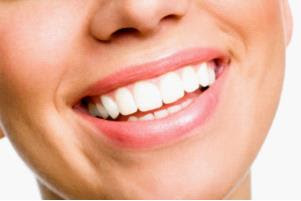In this two-part article series, we take a comprehensive look at dental implants. We explain what they are, how they work, what the treatment entails and what benefits and advantages they come hand-in-hand with.
Welcome back to the concluding installment of this two-part article series all about dental implants. In our previous post, we discussed what dental implants are and some of the benefits they offer. Dentists in Silver Spring MD explain that the benefits and advantages that come with dental implants have resulted in these incredible devices being regarded as one of the most important and significant breakthroughs in the field of dental science in recent decades. Besides the fact that they are in effect identical to natural healthy teeth, the biological fusion between your jaw and the titanium screw comprising your dental implant allows the entire tooth substitution structure to stay steadfastly embedded in your mouth. This means that your replacement teeth can function just like natural, healthy teeth.
How the Dental Implant Treatment Works

During your preliminary consultation, your cosmetic dentist in Silver Spring will execute a complete oral assessment and decide upon the best possible surgical plan for your unique case. The first step will be determining the site/s for your dental implants. When you have come in for treatment and your implants have been placed, your dentist will provide you with temporary tooth substitution while you spend the next few months healing. Once the osseointegration has occurred to the desired degree, you will be fitted with your original, artificial and permanent replacement teeth.
Dental Implants: Even More Benefits and Advantages
A Cosmetic dentist in Silver Spring explains that dental implants accomplish vital functions that assist in sustaining an excellent standard of oral health.
- Dental implant restorations reinstate the entire missing tooth from the root to the crown, which not only affords an aesthetic replacement, but also the fundamental source of functional stimulation that the missing root once offered the underlying jawbone. This functional stimulation helps to protect good bone volume, prevent deterioration and keep your jaws healthy and strong.
- If you leave a missing tooth/teeth untreated, adjoining teeth start shifting in order to fill the gap/s left behind. This creates severe problems as this instability travels from tooth to tooth in what can be likened to the ‘domino effect’, causing your entire dental arc to become unbalanced. Dental implant restorations provide support to the neighboring teeth, keeping your dentition stable and firm.
Dental Implants Can Last a Lifetime
 By opting for the dental implants as your mode of treatment, you will be left with not only a beautiful smile, but also a fully restored and efficient bite that can last a lifetime. The resourceful skill and proficiency that go into the creation and assignment of dental implants and oral restorations utilize highly developed techniques and materials that last decades! If you continue to care for your new teeth, following a good and consistent oral hygiene routine comprising of daily brushing, flossing and rinsing as well as regular dental check-ups, you can enjoy the benefits and advantages of your new teeth for the rest of your life!
By opting for the dental implants as your mode of treatment, you will be left with not only a beautiful smile, but also a fully restored and efficient bite that can last a lifetime. The resourceful skill and proficiency that go into the creation and assignment of dental implants and oral restorations utilize highly developed techniques and materials that last decades! If you continue to care for your new teeth, following a good and consistent oral hygiene routine comprising of daily brushing, flossing and rinsing as well as regular dental check-ups, you can enjoy the benefits and advantages of your new teeth for the rest of your life!
A Final Note on Dental Implants
Dental implants are, by reputation, far better in purpose, look, comfort, health, and life span than older technologies, like traditional removable dentures. “Traditional removable dentures have a bad reputation for numerous reasons,” explain dentists in Silver Spring. “Other than their non-natural look, removable dentures are for the most part uncomfortable to wear; they can cause embarrassment and are often painful. To make matters worse, over time, the wearing of dentures can cause damage to your gums, which can lead to all kinds of oral health problems.”
On the other hand dental implants have a wonderful repute for improving one’s quality of life and smile, and many patients report back with nothing but positive feedback concerning their implants’ function and feel.





